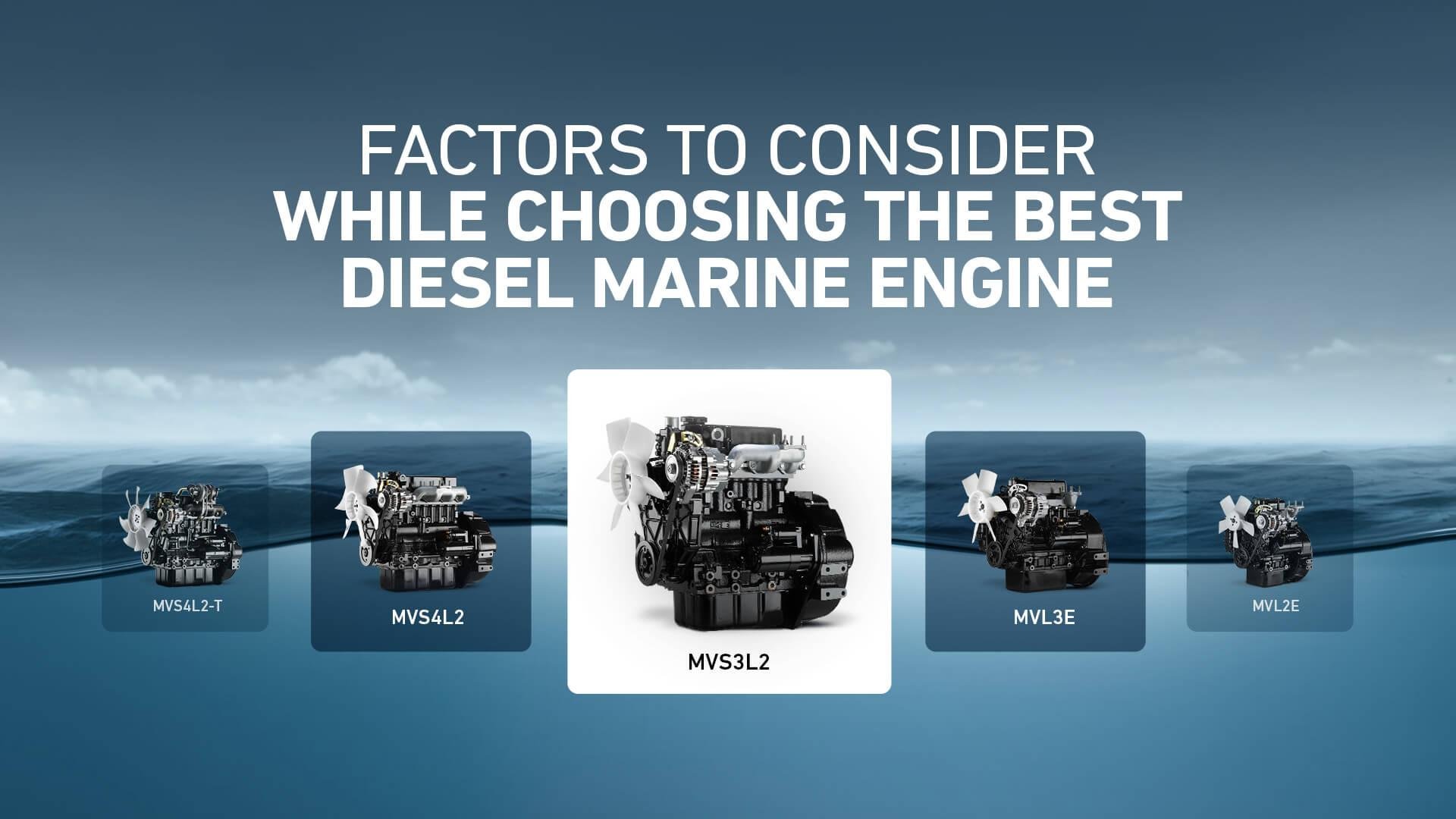Factors to Consider While Choosing the Best Diesel Marine Engine

Choosing the appropriate diesel marine engine is essential for ensuring reliable performance and optimal efficiency for your vessel. The engine serves as the powerhouse that drives both propulsion and power generation, whether you're operating a commercial ship, recreational yacht, or military vessel.
There are generally two types of marine diesel engines: propulsion and auxiliary engines. Both serve distinct purposes. Propulsion engines are the main drivers of vessels and are used to propel fishing boats, ships, cargo vessels, naval ships, and more. Auxiliary engines, on the other hand, support various onboard systems, such as pumps, compressors, and heating or cooling units.
Key Factors to Consider When Choosing a Diesel Marine Engine:
1. Engine Type
In the marine industry, particularly for larger vessels, inboard engines are large marine diesel engines that dominate due to their robust power, size, and weight, making them ideal for heavy-duty applications. Typically mounted beneath the deck, their size and power make external installation impractical. These engines are essential for long-distance travel and navigating challenging waters.
In contrast, outboard engines are smaller, lighter, and ideal for compact vessels. Their design allows for easy installation, portability, and maintenance, making them well-suited for recreational boats or vessels that don’t require the high power of inboard systems.
2. Vessel Type and Size
Different vessels require different types of engines. Before making a purchase, it’s crucial to assess the type and size of your vessel. Larger ships typically need slow or medium-speed engines with high power and torque output. The engine must be capable of meeting the vessel’s size and operational requirements to ensure optimal efficiency and performance.
3. Power Output and Torque Requirements
These factors directly affect a vessel’s speed, load capacity, and overall performance. Diesel engines are known for their superior torque, enabling efficient propulsion even under heavy loads or harsh weather conditions. Assess the power and torque specifications to match your vessel’s operational needs.
4. Vessel’s Weight-to-Power Ratio
Conducting sea trials with various power configurations helps determine whether your vessel requires additional horsepower. This ensures balanced performance without overburdening the engine.
5. Fuel Efficiency
Fuel efficiency is critical, especially for long voyages or unpredictable routes. Marine diesel engines, known for higher thermal efficiency than gasoline engines, extract more power from every drop of fuel. This not only reduces operational costs but also extends the travel range. MVDE offers some of the most fuel-efficient marine diesel engines, helping reduce long-term costs while ensuring high efficiency and rated output.
6. Maintenance & Serviceability
Before investing in a diesel engine, consider factors such as ease of maintenance, availability of spare parts, and access to service centres. These are crucial for minimising downtime and operational disruptions. MVDE, an Indian diesel engine manufacturer, is known for producing engines that require minimal maintenance and offer reliable after-sales support.
7. Durability & Reliability
Marine environments are demanding, with salt water, humidity, and temperature fluctuations constantly testing equipment. Diesel engines are built to endure these challenges, providing reliable performance over long periods. Choose engines that can handle varying loads and rough conditions while offering straightforward maintenance and extended service intervals.
8. Environmental Impact
With stricter emission regulations in place, environmental performance is now a major consideration. Modern marine engines are designed to reduce emissions of nitrogen oxides (NOx) and particulate matter through technologies like exhaust gas recirculation (EGR). Diesel engines, in general, emit fewer harmful gases compared to petrol engines.
Opting for an environmentally friendly engine not only minimizes your ecological footprint but also ensures compliance with regulatory standards.
Conclusion
Selecting the best diesel marine engine involves evaluating multiple factors, including engine type, power output, vessel compatibility, fuel efficiency, durability, environmental impact, and maintenance needs. By carefully assessing these criteria against your vessel’s requirements, you can make an informed decision that ensures safe and efficient operations over time.
For those seeking a trusted solution in marine propulsion systems, Mitsubishi diesel marine engines stand out as an excellent choice. Renowned for their durability, fuel efficiency, compact design, and compliance with global emission standards, MVDE—a leading marine diesel engine manufacturer in India—offers versatile options for both recreational boats and commercial fleets.
Investing in a Mitsubishi diesel engine not only boosts performance but also delivers long-term reliability.




